Most Common Pests In Cannabis: Mealy Bugs

- 1. What are mealy bugs?
- 2. What do mealy bugs look like?
- 3. Where are they found?
- 4. What do mealy bugs do?
- 5. Mealy bugs symptoms
- 6. How to prevent them?
- 7. How to deal with them?
- 7. a. Effective solutions for mealy bug infestations
- 8. Other common cannabis pests
- 9. In conclusion
Mealy bugs are white fluffy bugs that suck the sap out of your plant. Even though they're relatively harmless, they excrete honey-dew which can attract a lot of other bugs and, in combination with warmer temperatures, it can also produce fungi. These bugs aren't a big deal but can attract other types of bugs and ultimately fungus. Even though they don’t present a big risk for cannabis seeds, the consequences of having them live on your plants can be fatal.
1. What Are Mealy Bugs?
Mealy bugs are small white insects that thrive in moist and humid places. It can be super easy to find them in your growing space if you don’t take care of the temperature and humidity levels.
2. What Do Mealy Bugs Look Like?
Mealy bugs are white scaled fluffy bugs, looking almost like mold or powdery mildew. You can find both female and male mealy bugs on your plants, both of them look similar but with a couple of differences.
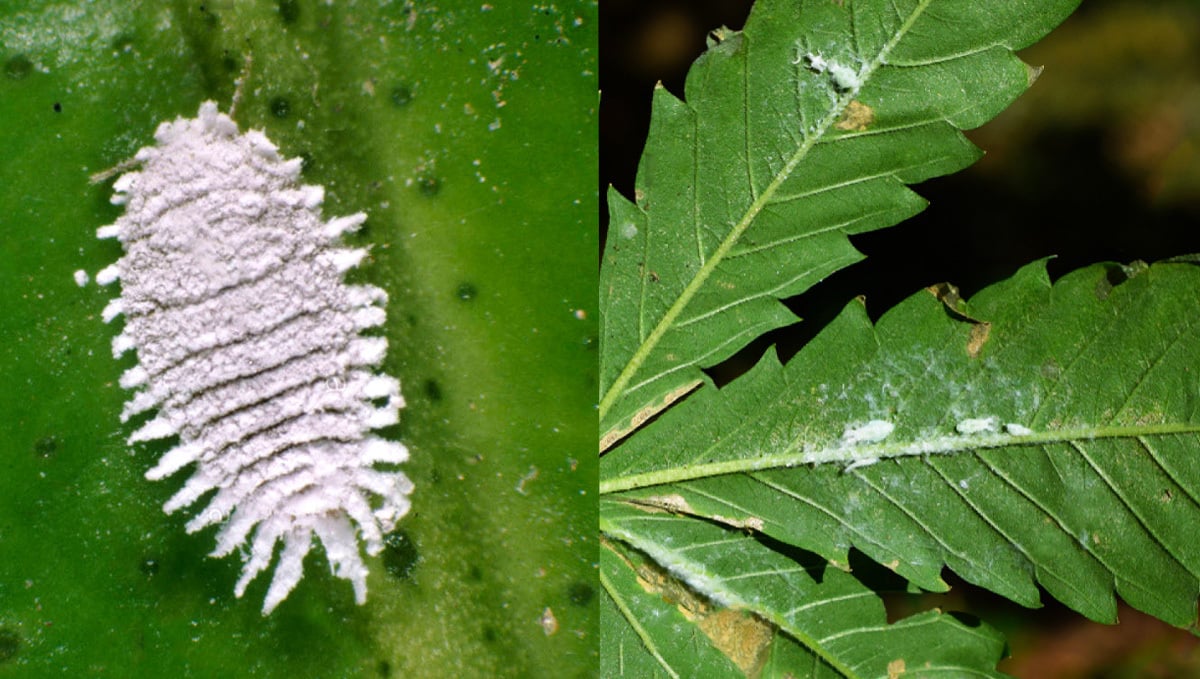
The male bugs are tiny and have wings, they live for a short amount of time and exist solely for the purpose of reproduction. Female mealy bugs are the real problem, they are bigger and live for much longer, allowing them to reproduce multiple times, increasing the mealy bug population in your growing room really quickly.
3. Where Are They Found?
In the beginning, these bugs will try to hide, but as the population grows, you will be able to see them easily.
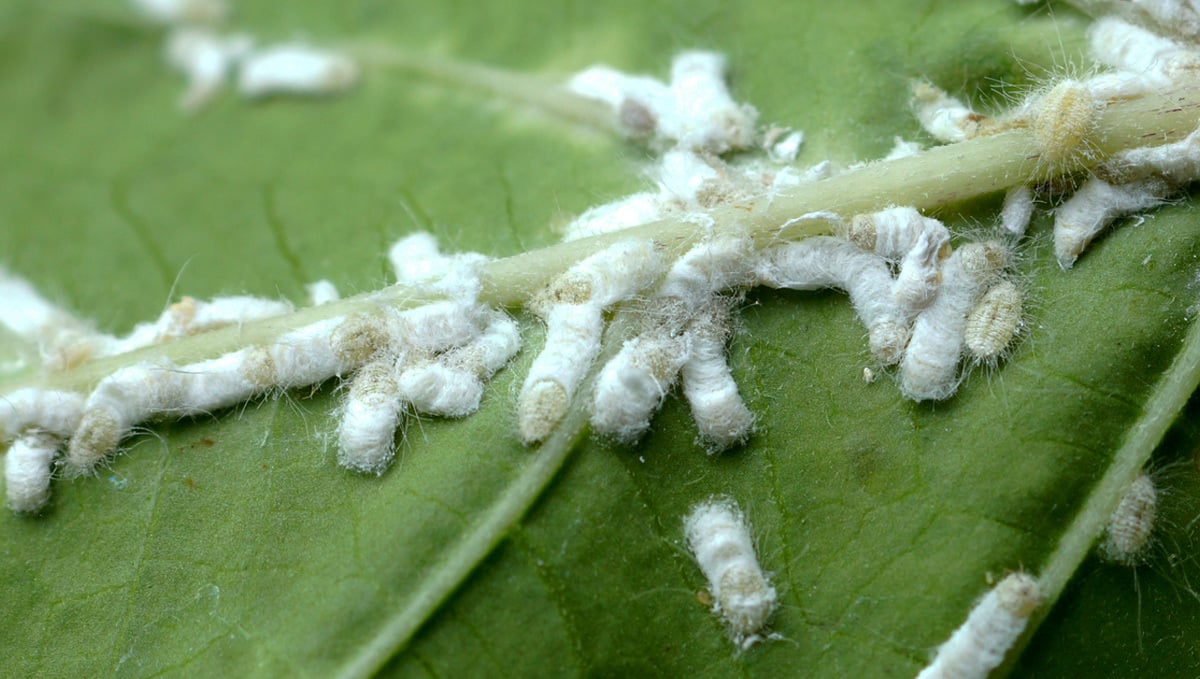
When the population grows, you will see big clumps of what looks like cotton all throughout the plant, especially in the stems and crevices of your plant.
4. What Do Mealy Bugs Do?
These insects literally drain the vitality out of your plant, they feed on the sap of the cannabis plant and will slowly but steadily decrease the amount of energy available to develop, unless you take care of them early. Mealy bugs also excrete sugary water called honey-dew, this will attract other bugs like ants and other bugs that feed on it. This will not only have your plant infested with all kinds of bugs but the combination of the bite wounds and honey-dew will produce a fungus that will start covering your plant’s leaves, decreasing the surface area needed to perform photosynthesis.
5. Mealy Bugs Symptoms
With mealy bugs, there aren’t any visible symptoms other than the bugs itself. Although you will see your plant becoming weak followed by the yellowing and death of leaves, you won’t see any sign until the population has grown out of control.
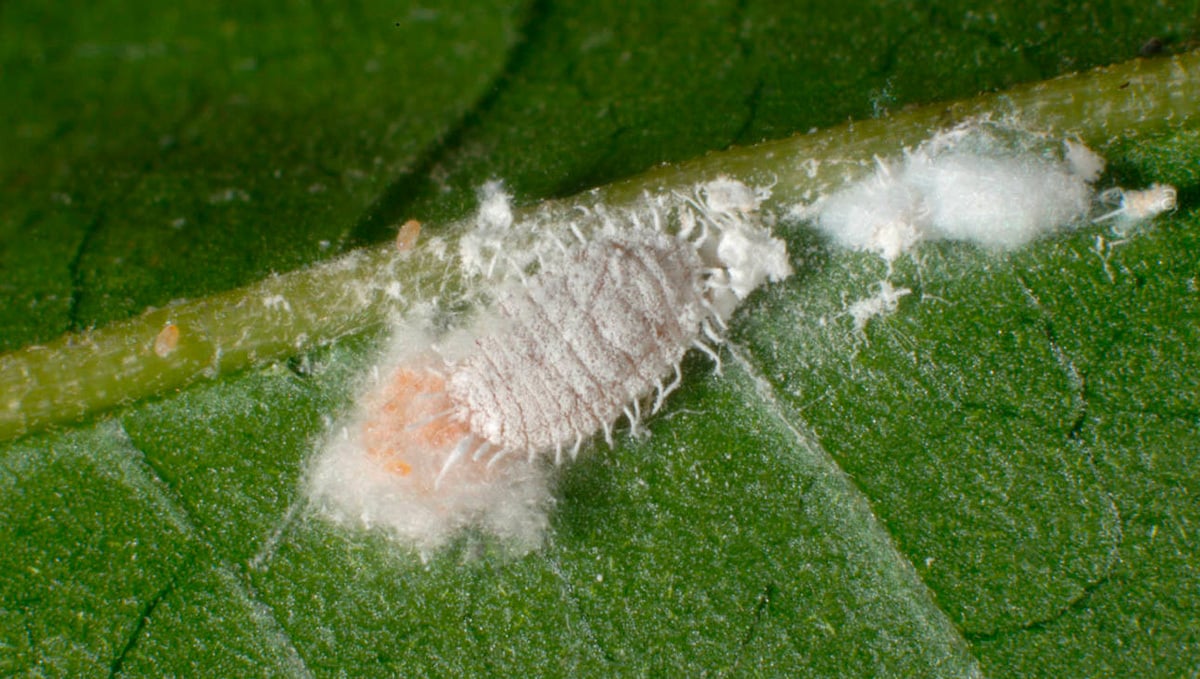
Before that, the only sign of mealy bugs is the appearance of white fluffy bugs grouping up in the stems and leaves.
6. How To Prevent Them?
While there are some articles floating around the web saying there is no efficient way to prevent them, this is actually not true at all. The first bit of advice we can give you is to closely control the humidity and temperature of your growing room. As already mentioned, mealy bugs love a warm and humid setting, so be sure to keep a close eye on the temp and humidity levels of your grow space and make sure they both stay within range. Another good way of preventing them is to be on the lookout for ants. They feed on honey-dew so if you see ants around your plant, it can be a sign of the beginning of a mealy bug (or any other kind of bug that excretes honey-dew) infestation.
7. How To Deal With Them?
Mealy bugs are quite resistant, it can be really hard to get rid of them. We recommend using more than one way of dealing with them. The first thing is to manually remove as much of the bugs as you can. After you’ve done that, you can use Neem oil, Insecticidal soap, and a mix of 90ml of water and 10ml of alcohol to eliminate them.
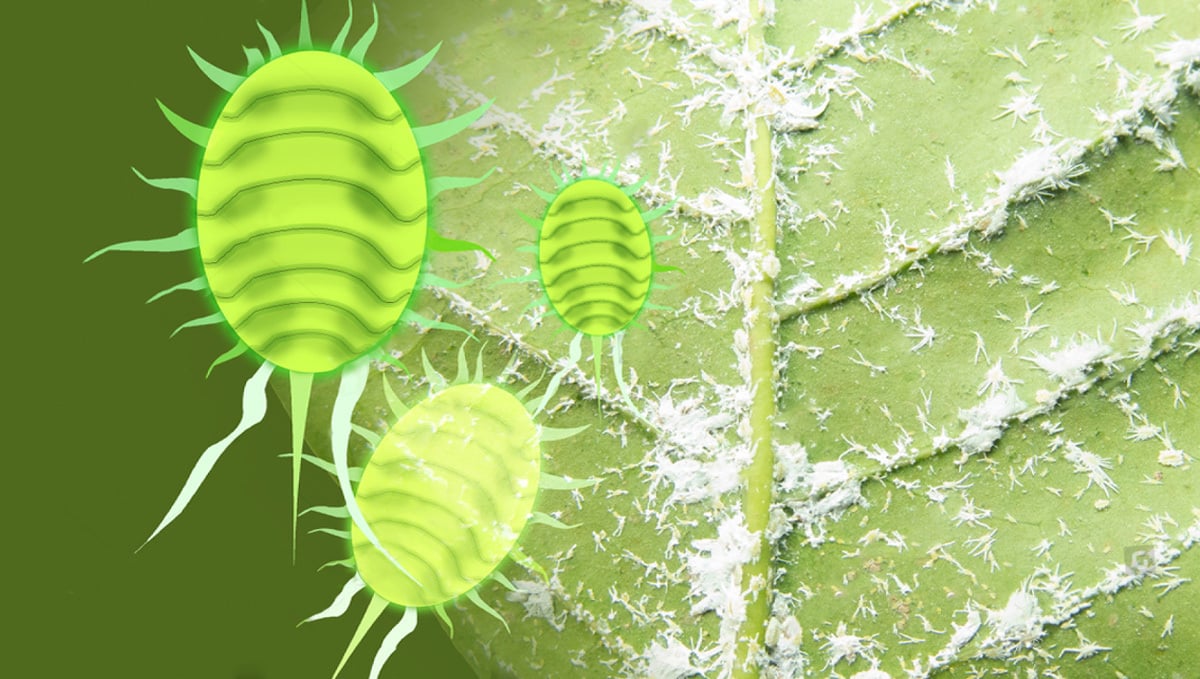
Effective Solutions for Mealy Bug Infestations
There are a handful of methods you can use to help control the spread of a mealybug infestation.
Hosing and rubbing down the plants
All good garden and hydro supply stores offer a range of adjustable sprayer bottle options. Grab one of these, turn the spray power up to max, and blast the little bastards off your plants. You can also manually pick them off, to make sure this method is 100 percent effective in removing the mealy bugs.
Rubbing alcohol
You can also liberally spray your crop with watered-down alcohol. Make a mixture of 9:1 water to rubbing alcohol, and spray away. This will have adverse effects on the crop but will kill all mealy bugs and their eggs, plus other pests.
Insecticidal soaps
These work by weakening the outer shell of the bugs, which results in them slowly dying from dehydration.
Neem Oil
This product can be used as a preventative tool, and to control infestations that have already taken hold. You will want to mix up a solution of 500mls of water, a tables spoon of neem oil, and a few drops of insecticidal soap. Simply use a garden sprayer to apply this mixture as often as you like, but be careful during the flowering stage and ensure you keep the budding sites free from the spray.
Diatomaceous Earth
This product is a great way to help prevent an infestation before they get off the ground, literally. All you have to do is sprinkly Diatomaceous Earth around the base of the plant. This product is made from fossilized shells and while totally safe for humans to handle, it is sharp at the microscopic level. It will make a bunch of tiny cuts all over the bugs and dehydrate them.
Beneficial Insects
While beneficial insects won't be effective enough to save a crop from a widespread infestation, they can act as a great preventative tool and work in conjunction with many of the organic solutions available. Bugs like Ladybugs, Lacewings, Predatory mites, Thrips, and others can help and are a good idea to keep around any cannabis garden, indoor or outdoor.
Be sure to not use all of them at the same time because that will damage your plant. The best thing to do is to use one method at a time and see which one is more effective in your case. Also, have in mind that completely eliminating them will take quite a lot of time, you will have to apply the treatment regularly and every day if necessary. Always take a look at the signs your plant gives and see how the mealy bugs react.
8. Other Common Cannabis Pests
There we go, everything you need to know to protect your crop from the dreaded mealy bug. But there is a smorgasbord of separate nasties that can affect both indoor and outdoor grows, so lets take a brief look at a few of the most common pests for cannabis.
Spider Mites
The number one pest for both indoor and outdoor crops in most parts of the world is, without a doubt, spider mites. These little a**holes can quickly turn a beautiful crop into an infested mess. They have a knack for starting up in one area, then spreading to the entire crop in a very short space of time. Spider mites suck juices from the plant and leave behind webbing - which is easily visible on damaged leaves. The best way to tackle spider mites is with predatory insects or a mixture of neem oil, insecticidal soap, and water.
Aphids
Aphids are also very common and can cause serious damage to your crop if not treated quickly. They come in a range of colors, but the most commonly seen variety is green. Aphids feed on the underside of leaves and like mealy bugs, they secrete a sticky substance known as honeydew which can attract other pests and create a sticky mess. The best way to tackle aphids is by introducing ladybugs or lacewings as they prey on them, but you can also spray your plants with a mix of neem oil and water. Diatomaceous earth can also be used to create a protective barrier around plants.
Thrips
Thrips are small, slender insects that are a common problem for indoor growers. They feed on the inside of the plant and can quickly turn healthy-looking plants into very sad specimens. Thrips also have their own unique form of damage - they create silver or white streaks across leaves, which is often mistaken for nutrient deficiency. The best way to tackle thrips is by introducing beneficial insects or the trusty neem oil mixture. Spinosad is also a commonly used treatment for thrips.
Whiteflies
Whiteflies are another pest that loves indoor grows but can also be found in outdoor gardens. They feed on the underside of leaves and like other pests, they secrete a sticky substance known as honeydew which can attract other insects and create an unpleasant mess. The best way to tackle whiteflies is by introducing beneficial insects or spraying your plants with a mix of neem oil and water. There are also a few great organic and synthetic insecticide options available that can make a huge impact.
9. In Conclusion
Although mealy bugs aren’t a huge threat, they can have really serious consequences. Signs of ants or any other bugs can be the start of a mealy bug infestation so be sure you check on your plants daily. Make sure you keep an eye on your plants and take action as soon as you see any bug in your growing space.








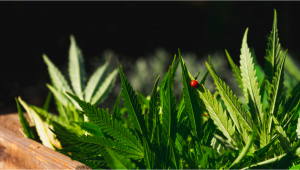

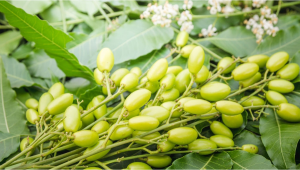



Comments